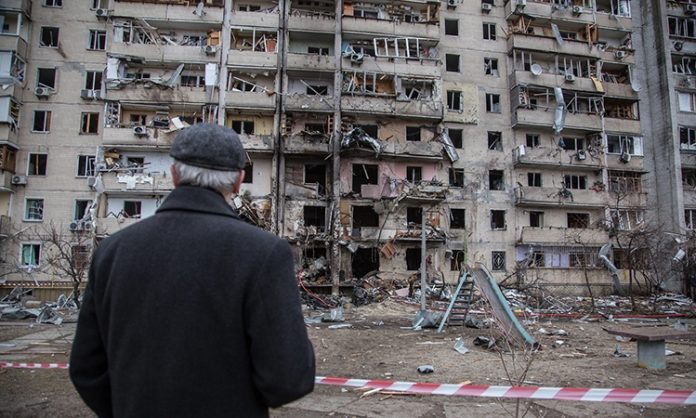Ukraine had been confounding expectations as the June counter-offensive assumed that Ukrainian soldiers equipped with modern Western weapons and trained in Germany would retake enough territory to persuade the enemy to come to the table, according to The Economist.
However, the counter-offensive did not go according to plan. Despite heroic efforts and breakthroughs of the Russian defences at Robotyne, Ukraine liberated less than 0.25% of the territory seized by Russia in June. The 1,000-kilometre front line has barely moved.
The Economist suggests that Vladimir Putin expects the West to be exhausted and Donald Trump to be re-elected; any ceasefire would provide an opportunity to rearm and prepare for a new attack.
Both Ukraine and its Western supporters are beginning to realise that the conflict is turning into a war of attrition. President Volodymyr Zelensky travelled to Washington for talks this week.
I have to be ready for the long war.
Rather than aiming to “win” and then rebuild, Ukraine’s goal should be to ensure that it survives the long war and thrives despite of it.
Ukrainian soldiers are exhausted and the army lacks the manpower to mount a sustained large-scale counter-offensive. To tip the scales in its favour, Kyiv needs to rationalise its resources and change the game rules. New tactics and technologies could shift the conflict to Russian territories.
Ukrainian tech entrepreneurs are ramping up drone production: with their help, the country will be able to disrupt Russia’s military infrastructure and deny its navy sanctuary in the Black Sea. However, Russia has also increased drone production.
Alongside offensive capabilities, Ukraine needs to improve its resilience: it needs reliable supplies of artillery and training. The Economist believes it is necessary to establish an effective defence against continuous air attacks not only in Kyiv but also in other important cities. That is why is why squadrons of F-16s and missile defence systems are essential.
A number of changes are needed in the economic sphere, aimed not at post-war recovery, but at increasing production and capital expenditure. The economy has shrunk by a third and almost half of Ukraine’s budget is financed by Western money.
Ukraine is also facing a labour shortage with about a million people involved in the military conflict and millions more fleeing the country.
Kyiv has a lot of potential, from producing more weapons to processing more of what it grows on its farms. The challenge is to get local and foreign firms to invest more and lure more Ukrainians back to the western parts of the country, not involved in active confrontation.
The Economist considers that the Russian navy should be pushed back to ensure safe exports through Ukrainian ports on the Black Sea.
The long-standing problem of corruption in Ukraine must also be addressed. More action is needed to make it easier to do business, from recognising qualifications gained by refugees abroad to offering firms military insurance.
In the long term, the best guarantee of Ukraine’s security is NATO membership. However, what the European Union has to offer is no less suave: not just money, but the prospect of membership. European integration can give Ukrainians hope and spur economic reform, just as it stimulated much of Eastern Europe in the 1990s.
For this to happen, Europe needs to rethink its strategy. It has provided as many weapons as America and much more financial aid, but further steps need to be taken. If Trump wins in 2024, he could cut American military aid. But even if he loses, Europe will still bear a huge burden, having to strengthen its defence industry and reform EU decision-making to serve more members.
Ukraine’s defeat in the war could mean Russia moving closer to the EU borders, whereas a victory would result in a new EU member with 30 million well-educated people, Europe’s largest army and a major agricultural and industrial base.
Too many discussions are built on the end of the military confrontation. For Ukraine to prosper, hoping for an early victory is not enough. Leaders must be prepared for a protracted struggle.
